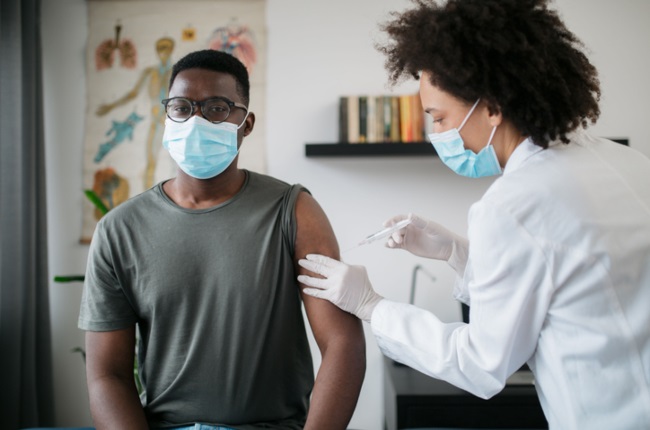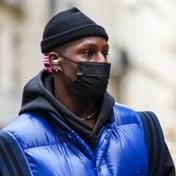
It’s a decision that will have an impact on every part of our lives – health, jobs and even our love lives.
Those who refuse to get vaccinated against Covid-19 are digging their heels in even deeper, while many of those who have been jabbed are getting more vocal about it.
It’s a debate that has even caused couples to split. And many employers, schools and recreational centres have already drawn a line in the sand: “No proof of vaccination, no entry.”
The legal effects of this will still be the topic of much legal contention, no doubt. But it seems SA’s health ministry is seriously considering the idea of vaccine passports – just like the governments of France, Australia and Israel have done.
Drum speaks to Leigh Crymble, Bread Crumbs Linguistics founder and Wits University Behavioural Economics doctoral candidate, who explains the language and psychology of vaccination messaging and motivation.
Covid-19 vaccination’s effect on relationships and romance
“When decisions are as life-changingly important as to vaccinate or not, it’s not surprising that the split in opinion can create rifts in friendships and relationships,” the behavioural linguist explains.
“It becomes an ‘us versus them’ antagonism. Whichever group you’re in, you start to align more to your in-group, and alienate those in the out-group. This is a very strong psychological effect which results in you changing how you view people in the out-group. We want to be around people who share our views, we inherently love confirmation bias. So, it becomes difficult for us to tolerate people with opposing views.”
Leigh suggests that, while tolerating different views, an empathetic approach is necessary to motivate those in your life to get jabbed. “But while a diverse set of views is to be encouraged on the whole, so we don’t exist in echo chambers of our own beliefs and ideologies, you can’t argue against vaccinations for long. So here’s hoping everyone chooses to get their vaccine, as soon as they can.”
Men and vaccination myths
South African men have been heavily criticised for their vaccine hesitancy, and even though it’s ‘not all men’ who are reluctant, many South African men are just refusing to get jabbed.
“A lot of work has been done looking at the gender split when it comes to health promotion activities in SA in general, vaccinations being one of the areas of concern,” the linguist says.
“This is an unusual pattern. In countries where vaccine uptake is recorded by sex, there is a slight trend towards men being more likely to get vaccinated than women. What we’ve seen in previous research is that beliefs and ideas about masculinity and health, and seeing the health system as a 'place for women' could be behind this imbalance.”
Leigh adds that, from what she's seen, men seem to have a bigger apprehension towards needles than women.
Ideas around masculinity may also have something to do with this.
“Anecdotally, I run a weekly vaccine shuttle and help transport people to vaccine sites and most of the men I chat to tell me that they are more scared of needles than women are, because women they know have had children which involves multiple medical procedures so they’re 'used to that'.
“Whatever the reason, men need to be encouraged to get vaccinated. Perhaps it’s drawing on women in their lives to help encourage them, or public health messaging that is very targeted to men that draws on boosting a sense of masculinity rather than being a threat to it. There is also a lot of misinformation about infertility and vaccines, which needs to be corrected.
‘FOMO’ as motivation
The fear of missing out (or FOMO) could persuade some people to get jabbed.
“When people around us are all doing something, we want to be part of it too,” says the co-founder of Bread Crumbs, which combines elements of language or linguistics with cognitive psychology and behavioural science to shape communications that lead to behavioural change.
“We need vaccine ambassadors, everyday people not just influencers and celebrities, to be sharing their message and their story," she suggests. "This relates to a behavioural principles called social proofing.
It’s why, Leigh explains, some vaccination sites are proving to be so popular with people posting their selfies or snaps on social media after getting jabbed.
"Everyone wants to experience this ‘fun’ site and get their selfie moment with one of the colourful banners in the post-vaccine observation area and their ‘vaxxed and relaxed’ sticker. The more fun we can make things, the easier it becomes to get people vaccinated.”
‘It’s about the perception of scarcity’
The expert attributes the marked increase seen in sign-ups when the 18-35 cohort got the green light to register to perception.
“The first reason in higher signups in the younger age groups is linked to the behavioural principle of scarcity. We want what we can’t have, and if something is reserved for others or limited or VIP, it drives us to want it more.
“So, when vaccines were only available to healthcare workers or the older generation, it absolutely boosted interest amongst the younger groups to get vaccinated.
"This group is also more digitally inclined and tech savvy,” she notes.
Mandatory vaccination of employees
Some large employers are making vaccination compulsory company-wide and Leigh says this is the right move.
“What we have to note quite specifically here with this term ‘mandate’ is that it is not taking away anyone’s rights here. “I’m a big fan of libertarian paternalism which means I can be presented with options – and even nudged to a decision – but ultimately the choice is still mine,” she says. “You have the right to decline the vaccine, but the company requiring it has the right to require it from you."
She’s interested, she adds, to see how quickly these mandates will be announced across other businesses.
'Anti-vaxxers' vs 'the vaccine-hesitant'
Stadiums and other recreational venues are contemplating banning unvaccinated people as the leisure sector tries to recover. But the terminology here is critical. “The semantics are important,” says Leigh. “Anti-vaxxers versus the vaccine hesitant.
"There aren’t actually that many anti-vaxxers around – thank goodness. This group is almost too far gone to convince otherwise. They don’t have rational discussions, they don’t change their minds when faced with anything that resembles scientific proof, and they’re deeply suspicious of any experts – as many cult-like groups are.
"The vaccine hesitant are different. These are people who have legitimate concerns or fears and need to be addressed with empathy and care.”
Those ‘family meetings’
“This pandemic has – without question – shaped the future of health communication in both the public and private sector,” Leigh says. “So many lessons have been learnt.
Read more | What you need to know about the vaccine ‘passports’
“Our ‘family meetings’ were critical moments in the early stages, with our President addressing us directly, keeping us updated on developments, greeting us in all official languages, his powerful usage of personal pronouns in his speeches and building on the themes of family/community/patriotism.
"This was critical to get public buy-in to the lockdown restrictions and to build credibility and trust in the government,” the Wits neuromarketing, plain language and brand communications lecturer says. “Where we are now is different.”
Ultimately, the behavioural linguist says, different approaches work for different people.
“I have a friend who got vaccinated purely so he could start going to bars/clubs again and another friend who just wanted to go back to gym. Tapping into what people want, and how vaccines can give them that, is crucial.”
Click here to register for the jab on the SA government's Electronic Vaccination Data System (EVDS) Self Registration Portal.



















